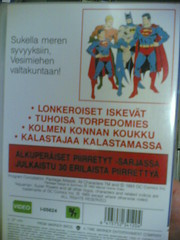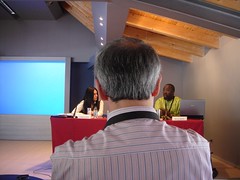
"There´s too few roles available for boys. They are very early divided into winners and losers."
This assessment by a social worker specialised in marginalised boys made me think. Young men in this country are surely not doing too well. Even when there are more and more dads who play an equal role in bringing up the kids, too many boys still grow up in a climate where showing emotions is a sign of weakness and expressing violence strengthens your position in the group. Boys don´t cry. Be a man. It´s no wonder that according to research, well-being does not have a gender but ill-being does.
This became evident on a recent visit to an amazing NGO called Icehearts in Vantaa, Finland. Icehearts specialises in boys about to be taken into custody, having a difficult situation at home or not doing too well socially. They also include young people with an immigrant background. They often start with boys who have zero trust towards adults (for a reason) and are used to solving things through violence. By helping in school, teaching trust and group skills and playing sports, Icehearts mentors 6–18-year-old boys to get a grip on their lives, to plan their future and to continue their education. The men working at Icehearts show an incredible amount of dedication: they commit to working with a group of boys all the way from the age of six to maturity.
What they deal with is the same thing one can witness in the award-winning Finnish documentary Miesten vuoro by Joonas Berghäll and Mika Hotakainen. The documentary captures intimate discussions between Finnish men in the sauna. In the incredible scenes the men open up about their misfortunes, mistakes and let the tears run. Without victimising or ridiculing its subjects, Miesten vuoro shows that a large part of Finnish men have nonexistent tools and channels to deal with emotions. These tough guys demonstrate how the need to talk about feelings, love and family is there. The stuff has obviously been bottled up for years so when the floods break, there´s no stopping. No one makes it out from the cinema with dry eyes. At least every Finnish man recognises a father, husband, uncle or grandfather.
Without proper interventions we will keep on growing generations of men without any skills to deal with themselves. Exactly due to these nearly nonexistent emotional skills things are dealt through alcohol and violence.
Too often we use well-meaning tools for trying to change people into something else rather than coaching them to be better versions of themselves. Icehearts shows us one way. They clearly state that starting from skills and adapting the activities based on the group is the way forward. As one of the coaches put it: it´s not about ice hockey, it´s about the boys.
There is something to learn also from the small Finnish municipality called Kyyjärvi where they successfully formed a cooperative from people who had been unemployed for years. The key to success was that it started from interviews where the men and women were allowed to tell what they can do. Allowing people to keep their pride while going through difficult times helps you to win them on your side.



























